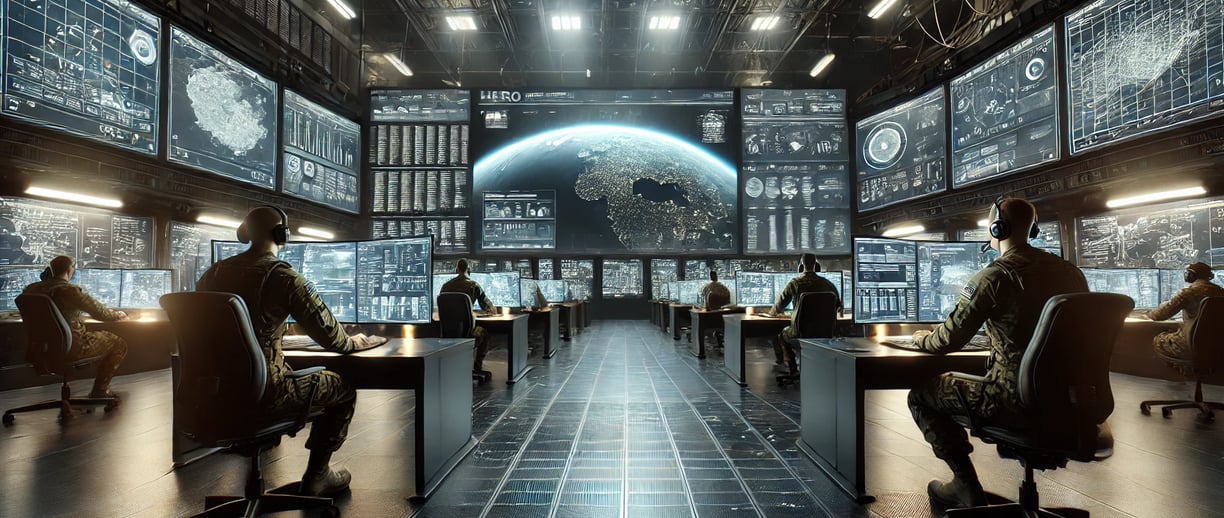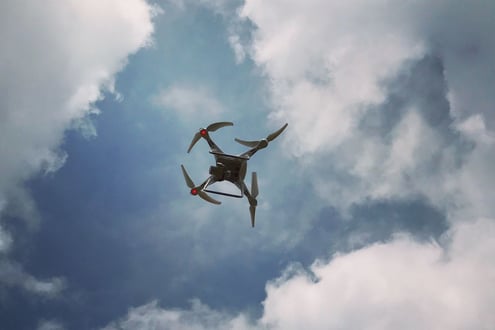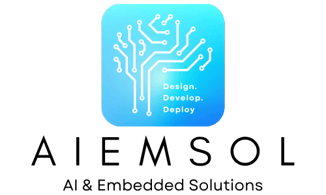Innovative AI-Powered Solutions for Mission-Critical Applications
4/12/20253 min read


AI-powered solutions
In high-stakes environments—where milliseconds matter, and failure is not an option—AI has quietly but confidently taken the wheel. From monitoring power grids to real-time situational awareness in defense systems, artificial intelligence is no longer a “good to have”—it’s essential.
But AI in mission-critical operations? That’s a different league altogether. Here’s why it matters, what’s changing, and where the world is heading.
What Exactly Is “Mission-Critical” Anyway?
In simple terms, mission-critical systems are the heartbeats of industries—systems that must work, no matter what.
Think:
A hospital’s emergency alert system
A satellite’s trajectory control
A bank’s fraud detection engine
Real-time logistics monitoring during military operations
If any of these go down, the impact isn’t just downtime. It’s potential chaos.
These applications demand:
High availability and redundancy
Real-time responsiveness
Regulatory compliance and accountability
Trustworthy, explainable decisions
In India, for example, agencies like ISRO and DRDO have embraced real-time AI models for aerospace monitoring. In the private sector, energy firms managing remote grid systems are now leaning on edge-AI solutions for autonomous fault detection.
Why Traditional Software Just Doesn’t Cut It Anymore
Legacy systems are rigid. They’re rule-based, deterministic, and often reactive. In a mission-critical scenario, where unpredictable events and massive data volumes are the norm, that’s a problem.
AI, on the other hand:
Learns patterns across time and sources
Handles unstructured data (audio, video, thermal, radar, text logs)
Supports human-in-the-loop workflows where final decisions are assisted, not overridden
This is particularly relevant in heterogeneous environments—like a battlefield command center or a multi-sensor space mission control room—where data types vary and latency can kill decisions.
Where AI Shines: The Technologies Behind the Magic


AI for mission-critical environments isn’t just chatbots and dashboards. Here’s what actually powers it:
🔍 1. Computer Vision for Visual Surveillance
Used extensively in UAVs and automated inspections in factories, CV allows machines to “see” and “interpret.”
In defense, this helps with terrain mapping and target identification. In healthcare, CV helps flag abnormalities in scans before a human doctor gets to them.
🧠 2. Machine Learning at the Edge
Instead of relying on cloud-only processing, edge AI brings compute to the source. That’s crucial in remote oil rigs, space vehicles, and smart grids.
Companies like AIEMSOL are working on scalable MLOps platforms that allow this kind of distributed intelligence without compromising reliability or traceability.
📡 3. Natural Language Processing (NLP)
NLP helps synthesize intelligence from unstructured text—mission reports, logs, or even intercepted communication.
It’s being deployed in cybersecurity, threat analysis, and crisis response.
🔄 4. Reinforcement Learning for Autonomous Systems
Think self-piloting drones that can make real-time adjustments based on obstacles, threats, or new mission parameters.
Reinforcement learning thrives where outcomes are uncertain, but stakes are high.
Real-World Inspiration: Striveworks & Palantir’s Tactical AI Framework
A recent collaboration between Striveworks and Palantir has demonstrated how fast-deploying AI models—paired with tight data governance—can transform national security.
Their approach involves:
Low-code/no-code AI toolkits
Scalable version-controlled pipelines
Audit logs for explainability
Operator-centric workflows—so that users (even non-technical ones) can adapt models as ground realities shift
This is especially important in mission-critical domains like defense and public safety, where agility, trust, and transparency go hand in hand.
Challenges No One Talks About (But Everyone Faces)
Let’s be real: this isn’t plug-and-play. There are big challenges:
Latency: Can the model deliver decisions in milliseconds?
Model drift: Will it still be accurate a month from now, with changing inputs?
Explainability: Can a commander or regulator understand why a model flagged something?
Security: Can the system resist adversarial attacks or data poisoning?
Organizations like AIEMSOL emphasize MLOps discipline—not just training models, but continuously monitoring, validating, and governing them in production.
What the Future Looks Like
AI for mission-critical applications is evolving fast. Here's what's around the corner:
Swarm intelligence: Autonomous fleets (drones, bots) collaborating in real-time
Quantum + AI: Supercharged compute for complex defense simulations
Digital twins: Real-time replicas of power plants, satellites, or critical infrastructure
Multi-agent systems: AI agents negotiating, collaborating, and acting across distributed environments
India is already experimenting with many of these ideas, especially in public-sector innovation labs and ISRO’s exploratory missions.
Final Thoughts
Mission-critical AI isn’t just about building smarter machines. It’s about making smarter, faster, and more accountable decisions—in environments where the cost of failure is too high.
Whether you're a CTO in aerospace, a strategist in defense, or a data leader in healthcare, the direction is clear: AI is now mission-essential.
If you're building or modernizing systems that cannot afford to fail, it might be time to look into tools, platforms, and partners who truly understand this complexity—from edge compute to human-in-the-loop AI governance. Some, like AIEMSOL, are quietly making that happen.
📚 References:
Striveworks & Palantir partnership—
https://www.striveworks.com/resources/ai-powered-insight-for-mission-critical-operationsNITI Aayog on AI for public good (India)—
https://www.niti.gov.in/ai-national-strategyEdge AI in mission-critical environments (McKinsey Report)—
https://www.mckinsey.com/business-functions/mckinsey-digital/our-insights/edge-ai-the-next-frontierExplainable AI and Ethics in High-Stakes Domains—
https://www.nature.com/articles/s42256-019-0138-9
Solutions
AI-powered SaaS for mission-critical applications.
Contact Info
Innovation
info@aiemsol.com
© 2025. All rights reserved.
Quick Links
AI Development
Embedded Systems
Blogs
Contact Us
